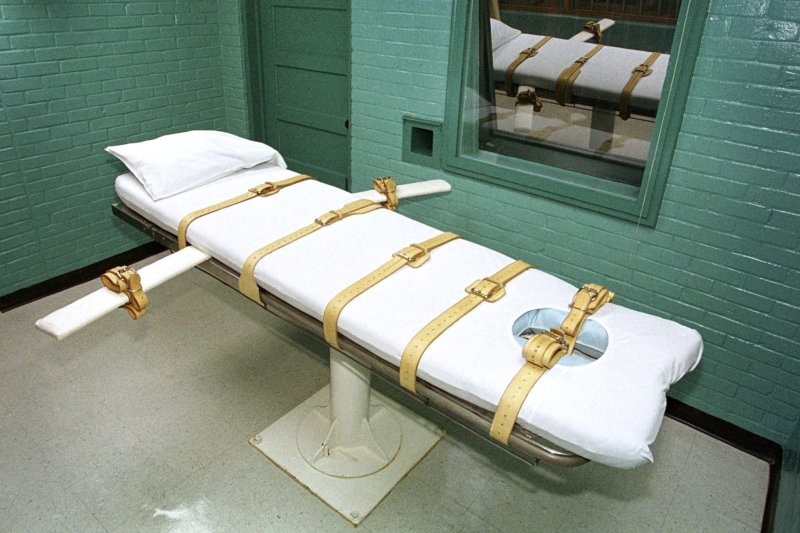
Tuesday's report notes that of the 57 people presently on federal death row, 34 are persons of color. More than two dozen are Black men and some were convicted by all-White juries. File Photo by Paul Buck/EPA
Sept. 15 (UPI) -- The Death Penalty Information Center said in a new analysis Tuesday that racial discrimination in the United States has played a prominent role in the administration of capital punishment in the past.
The report, titled, "Enduring Injustice: the Persistence of Racial Discrimination in the U.S. Death Penalty," examines the way that people of color -- particularly Black Americans -- have disproportionately faced executions, lynchings and police killings.
"The death penalty has been used to enforce racial hierarchies throughout United States history, beginning with the colonial period and continuing to this day," said Ngozi Ndulue, DPIC senior director of research and special projects and the report's lead author.
"Its discriminatory presence as the apex punishment in the American legal system legitimizes all other harsh and discriminatory punishments. That is why the death penalty must be part of any discussion of police reform, prosecutorial accountability, reversing mass incarceration and the criminal legal system as a whole."
Tuesday's report notes that of the 57 people presently on federal death row, 34 are persons of color. More than two dozen are Black men and some were convicted by all-White juries.
The analysis specifically cites the cases of Abu-Ali Abdur Rahman, who's argued that a prosecutor unjustly removed two potential Black jurors based on racial stereotypes -- and Julius Jones, who was sentenced to death by an all-White jury for killing a White businessman.
The report said between 1990 and 2010, 20% of inmates scheduled for execution in North Carolina were sentenced by all-White juries, and qualified Black jurors were disqualified at more than twice the rate of their White counterparts in almost 200 capital cases.
A mock jury study of more than 500 Californians six years ago also found that White jurors were more likely to sentence poor Latino defendants to death than poor White defendants, Tuesday's report noted.
Further, it cited an analysis that found killers of Whites were more likely to face capital prosecution than killers of Blacks.
The DPIC report also tied the racial history of capital punishment to ongoing civil unrest over police brutality that followed the deaths of George Floyd and Breonna Taylor, noting that exonorations of Black Americans are more likely to be linked to some type of official misconduct.
A separate report on Tuesday similarly found that more than half exonerations of innocent victims of all races involved some type of misconduct by prosecutors or police.
"Racial disparities are present at every stage of a capital case and get magnified as a case moves through the legal process," DPIC Executive Director Robert Dunham said.
"If you don't understand the history -- that the modern death penalty is the direct descendant of slavery, lynching and Jim Crow-segregation -- you won't understand why."
No comments:
Post a Comment